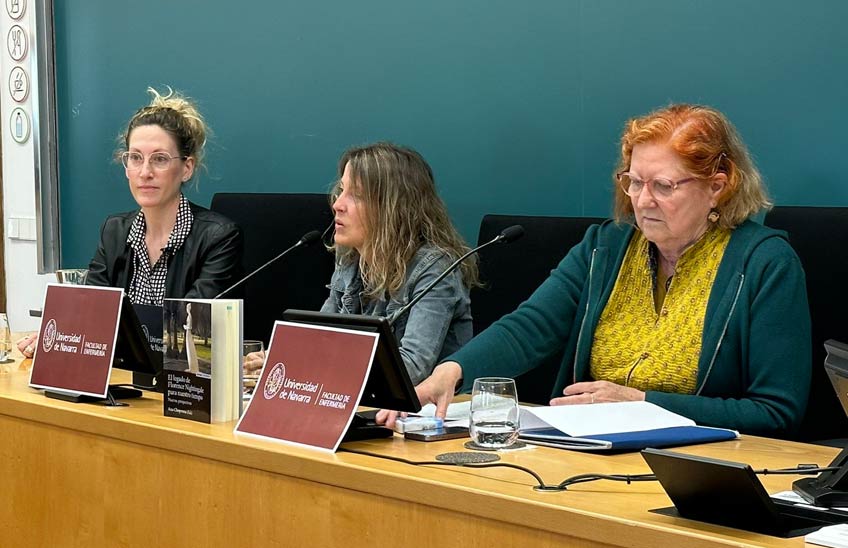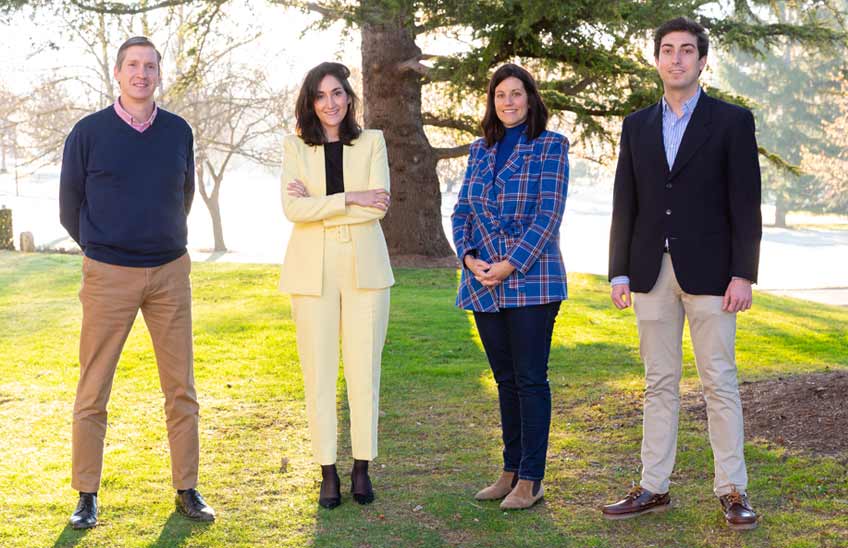presentation from the book "Florence Nightingale's bequest for our time".
Three of the authors share their contributions during the research conducted on one of the most named nurses in history

18 | 05 | 2023
The University of Navarra hosted the presentation of the book The bequest of Florence Nightingale for our timewritten by Ana Choperena, Vice-Dean of Students of the University of Navarra's NursingSchool , María López Vallecillo, from the University of Valladolid, Concha Germán Ros, from the University of Zaragoza, and José Diego López Sanz, from the University of Huelva.
"Writing about Florence Nightingale and providing a new feature is complicated, as she is one of the most recognized nurses in history", began her speech, Ana Choperena, also a history professor, "in recent years there are certain issues that are being interpreted differently, such as race, economic and social status of the people who lived with her". On this point, she clarified that the fact of reading her writings with "contemporary eyes can provoke that the perception can be complex and call our attention".
The work, included in the collection 'Astrolabio Mujeres', which coordinates the network WINN of the Institute for Culture and Society (ICS), deals with unknown aspects of the life of the English nurse, such as the reality of women in the Victorian context of the 19th century, her ecological perspective and her contribution to the Crimean War.
"I discovered Florence Nightingale gradually. And it was precisely in a magazine when I read that she discovered the circular diagram, giving value to the importance of statistics, that I became more interested," commented Professor Germán Ros, who focused on the holistic eco framework : "Nightingale said that every illness, at some point, was a restorative process. And that it is not necessarily accompanied by suffering, because illness and discomfort are not the same thing", and added that, in the words of the precursor of modern nursing, "the role of the nurse was to place the person in the best conditions for nature to act on them, because it is nature that heals".
In the last intervention of the presentation, Maria Lopez took the floor: "I wanted to draw the contribution of Florence Nightingale in the Crimean War, from a different perspective to what we know". Therefore, her contribution was to focus on the role of women during the Victorian era and in war conflicts: "She arrives in a completely hierarchical world, led by men, and she has to assert herself". When she began writing her chapter, "I wondered, were there more women interested in going to the conflict, did she go on her own two feet, what subject of women accompany her?" At this point, she alluded to her role as "nurse manager for leading other women who go with her to care at the front, exercising a role of organizing the team."




